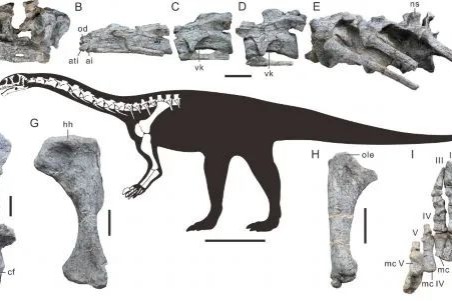There's a little bit of AI in everything you do

With the advancement of chips, improving algorithms and progress of Large Language Models, artificial intelligence is now playing increasingly larger roles in various fields.
Below are some of the fields in which AI plays a role:
Customer service
AI has revolutionized the customer service industry by providing efficient and consistent support to customers. AI-powered chatbots can handle a large volume of inquiries simultaneously, providing quick responses. These chatbots use natural language processing to understand and respond to customer queries in a conversational manner, mimicking human interaction.
AI can also analyze customer data to provide personalized recommendations and offers, enhancing the customer experience. It can assist in managing routine tasks such as scheduling appointments or processing basic transactions, freeing up human agents for more complex issues. Additionally, AI systems can learn from each interaction to improve responses over time, thus continuously enhancing performance.
In the realm of problem-solving, AI can quickly identify patterns and offer solutions based on past cases, which can significantly reduce issue resolution time. For example, if a customer reports an issue with a product, AI can scan a database of known faults and provide immediate troubleshooting steps or direct the issue to the appropriate department.
People often complain that AI customer service can seem impersonal and lacking in empathy, or be seen struggling when handling complex or unusual queries. There can be misunderstandings because of limited context awareness, and frustration when AI cannot resolve the issue, necessitating human intervention.
Hospital
One of the key roles of AI in hospitals is in aiding diagnostics through the analysis of medical images such as X-rays, MRIs, and CT scans. Advanced algorithms can detect subtle anomalies that a human eye might have missed, thus assisting physicians in making accurate and early diagnoses.
Moreover, AI is revolutionizing patient monitoring and treatment through real-time analysis of patient data, including vital signs and laboratory results. Machine learning models can predict patient deterioration with a high degree of accuracy, allowing for preemptive interventions that can prevent critical events. This proactive approach not only improves patient outcomes but also reduces the burden on hospital staff.
In addition to clinical applications, AI is streamlining administrative tasks in hospitals. It can optimize scheduling of appointments and procedures, manage inventory for better resource allocation, and even assist in billing processes. These improvements reduce overhead costs and increase the overall efficiency of hospital operations.
Lastly, AI facilitates remote consultation and monitoring, expanding the reach of specialist care to patients in remote or underserved areas. Telemedicine powered by AI allows for virtual consultations, which are particularly important during times of pandemic or in regions that have limited access to healthcare facilities.
Travel
AI significantly enhances travel experience by streamlining the booking process for flights, hotels, and rental cars through intelligent algorithms that sort and present the most suitable options based on travelers' preferences. It also optimizes itineraries by providing personalized suggestions for activities, dining, and attractions aligned with the traveler's interests. Further, AI assists during trips with real-time updates on traffic, weather, and flight statuses, ensuring a seamless journey.
At the destination, AI-powered translation apps and navigation tools help travelers navigate new environments and cultures with ease. Overall, AI personalizes the travel planning and execution process, making it more efficient, convenient, and enjoyable.
Home appliances
AI has significantly transformed home appliances, making them more intelligent and energy-efficient. Smart refrigerators can now monitor content and alert users when some food is nearing expiration date, and even suggest recipes based on the available ingredients.
AI washing machines and dishwashers adjust their cleaning cycles to match the size and level of dirt in their load, optimizing water and power consumption. Smart thermostats learn users' habits and preferences to manage heating and cooling systems efficiently, reducing unnecessary energy use while maintaining comfort.
Additionally, AI-integrated ovens can precisely control cooking times and temperatures, ensuring perfectly cooked meals. Such advancements not only enhance the performance of home appliances but also contribute to a more convenient and eco-friendly home environment.
Smartphones, tablets
AI has significantly transformed smartphones and tablets, enhancing their capabilities and user experience. Voice assistants like Siri and Google Assistant, powered by AI, allow users to interact with their devices through voice commands for tasks such as making calls, sending messages, scheduling events, and controlling smart home devices. AI technology also improves camera functions through advanced features like autofocus, image stabilization, and facial recognition, resulting in higher quality photos and videos.
Moreover, AI algorithms optimize device performance by managing background apps and memory more efficiently, leading to extended battery life and smoother operation. Additionally, AI provides personalized content recommendations for entertainment, news, and app suggestions based on user behavior. Overall, the integration of AI in smartphones and tablets delivers a more intelligent, efficient, and tailored user experience.
Driving
AI has revolutionized driving with the advent of autonomous vehicles and advanced driver-assistance systems. These technologies rely on AI algorithms to process vast amounts of data from sensors, cameras, and GPS, enabling vehicles to perceive their environment and make split-second decisions. Features like adaptive cruise control, lane keeping assist, and automatic emergency braking enhance safety by assisting drivers in maintaining safe distances, staying within lanes, and avoiding collisions.
Moreover, AI improves traffic management through real-time analysis of traffic patterns, optimizing signals and reducing congestion. Connected vehicle technology allows cars to communicate with each other and road infrastructure, further enhancing safety and efficiency by warning drivers of potential hazards and improving route planning.
In the future, fully autonomous vehicles promise to eliminate human error, a leading cause of accidents, and provide mobility solutions for those unable to drive. AI's role in driving not only aims to increase safety and efficiency but also to transform transportation as we know it.
Security
AI can significantly enhance security across various domains by leveraging its ability to analyze vast amounts of data, recognize patterns, and perform real-time monitoring and decision-making. In cybersecurity, AI algorithms can detect and respond to threats more quickly and accurately than traditional rule-based systems. They can learn from new attack patterns, adapt to evolving threats, and automate routine tasks such as patch management and vulnerability assessments.
In the realm of physical security, AI-powered video surveillance systems can recognize suspicious behavior or unauthorized access attempts in real time. This not only aids in rapid response but also reduces the need for constant human monitoring. AI can also enhance biometric authentication systems by improving accuracy and reducing false positives or negatives.
Moreover, AI can be integrated into internet of things devices to monitor environmental factors like temperature, pressure, or sound levels, which might indicate a security breach or an impending safety risk. Overall, AI's integration into security systems not only improves their effectiveness but also enables a more proactive and anticipatory approach to risk management.
Today's Top News
- Consumption gains steam, drives growth
- Summit seen as opportunity for warming Sino-Indian ties
- Foshan's steps to curb chikungunya paying off
- Aruban karate athlete hogs Chengdu spotlight
- Reopened roads to speed up search for flood victims
- Welcome extended to Modi, but prudence will prevail






























